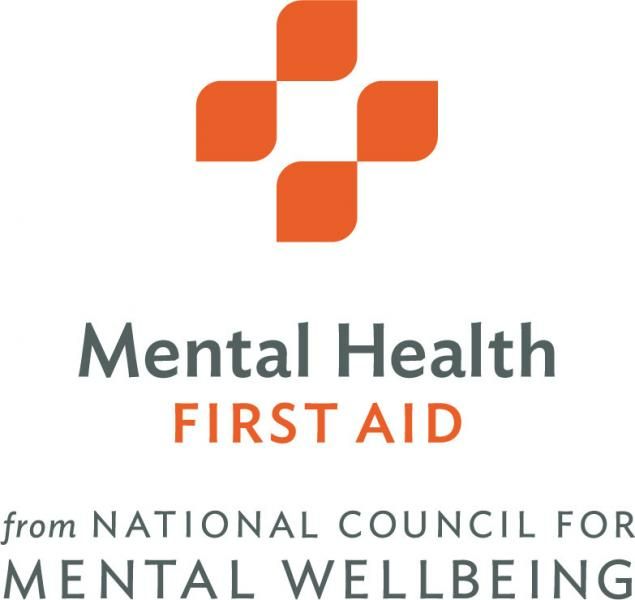Mental Health First Aid is a course that teaches you how to identify, understand and respond to signs of mental illnesses and substance use disorders. The training gives you the skills you need to reach out and provide initial help and support to someone who may be developing a mental health or substance use problem or experiencing a crisis.
Mental Health First Aiders are…
Teachers, first responders and veterans. They’re neighbors, parents and friends. They’re people in recovery, and those supporting a loved one. They’re First Ladies and Mayors. Mental Health First Aiders are anyone who wants to make their community healthier, happier and safer for all.
MENTAL HEALTH FIRST AID
for ADULTS
Mental Health First Aid for Adults teaches people how to recognize signs of mental health or substance use challenges in adults ages 18 and older, how to offer and provide initial help, and how to guide a person toward appropriate care if necessary. Topics covered include anxiety, depression, psychosis, and addictions.
MENTAL HEALTH FIRST AID
for YOUTH
Youth Mental Health First Aid is designed to teach parents, family members, caregivers, teachers, school staff, peers, neighbors, health and human services workers, and other caring citizens how to help an adolescent (age 12-18) who is experiencing a mental health or addictions challenge or is in crisis. Youth Mental Health First Aid is primarily designed for adults who regularly interact with young people. The course introduces common mental health challenges for youth, reviews typical adolescent development, and teaches a 5-step action plan for how to help young people in both crisis and non-crisis situations. Topics covered include anxiety, depression, substance use, disorders in which psychosis may occur, disruptive behavior disorders (including AD/HD), and eating disorders.
MENTAL HEALTH FIRST AID
for FIRE/EMS
Firefighters and EMS personnel are constantly exposed to traumatic events and life-threatening situations. That can take a toll on mental health.

